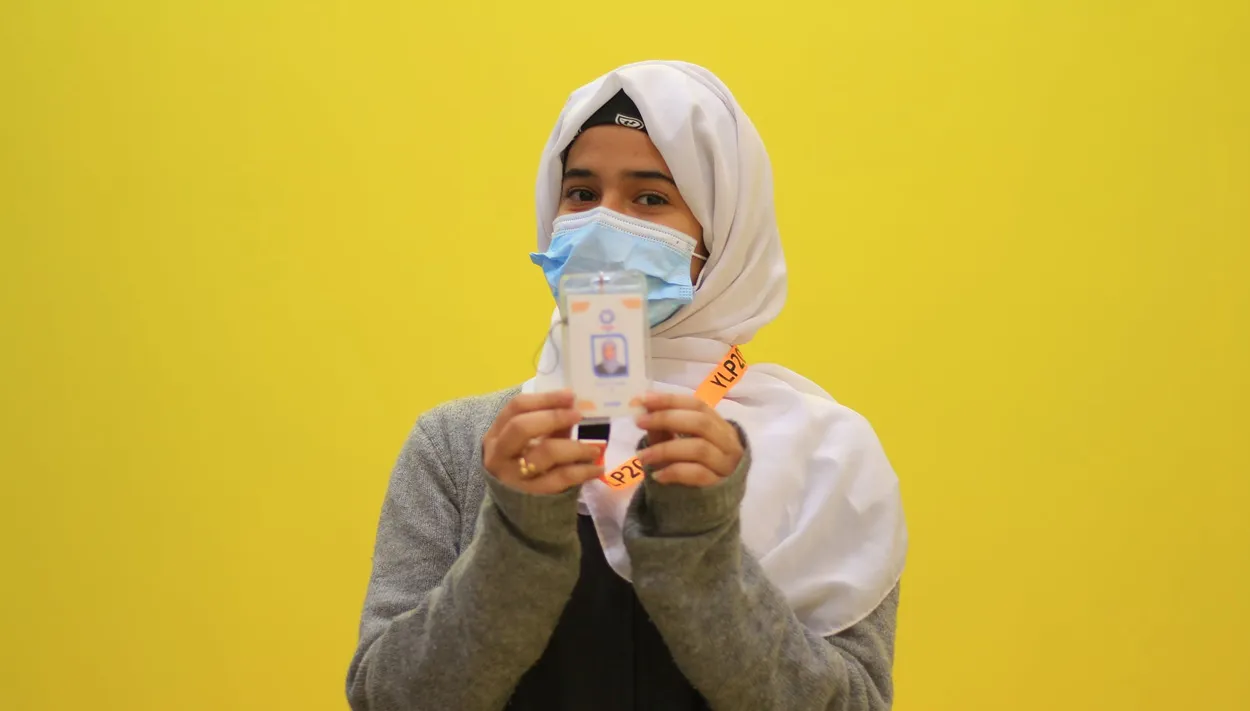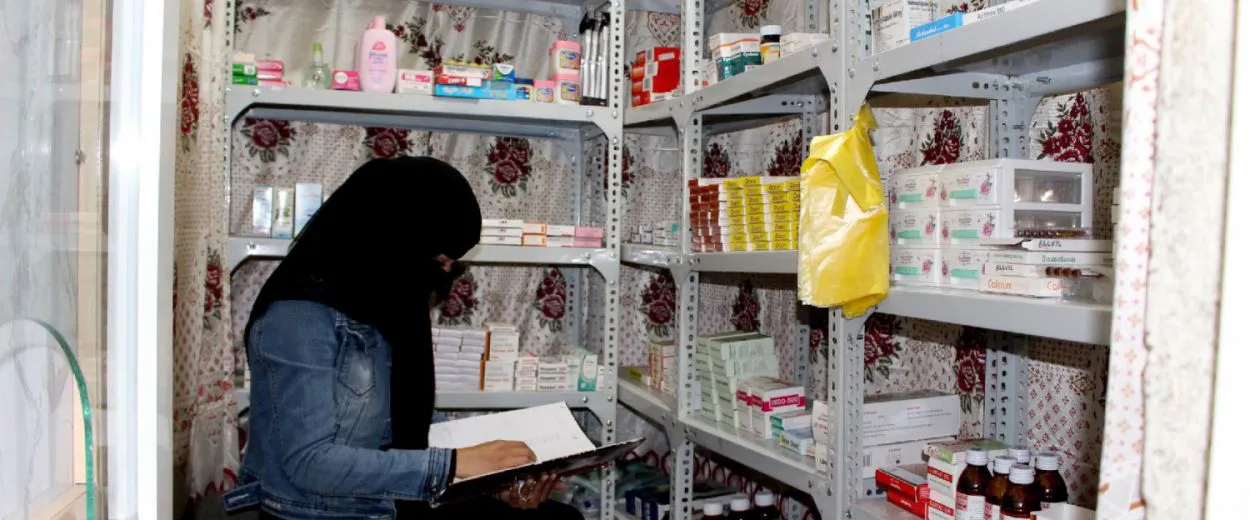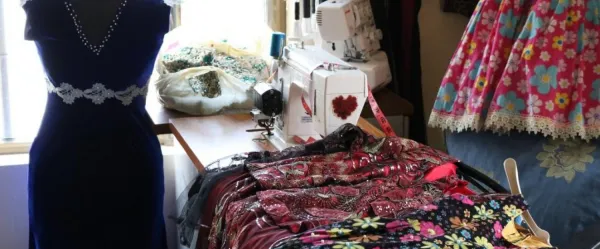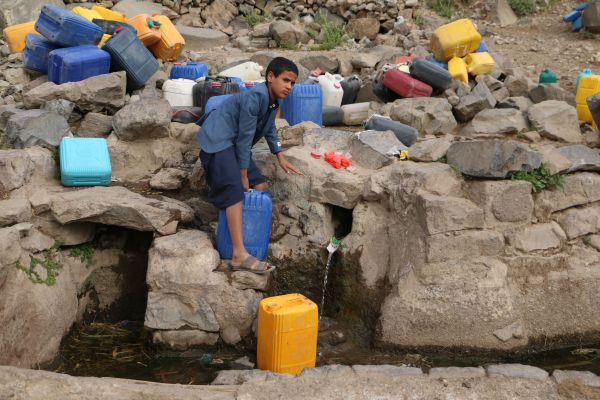Forgetting Fear
Little did the young pharmacist that graduated in the end of 2014 know what was in store for her future when she returned to her country in September 2015 after a short time abroad. She insisted on returning to her country, despite the difficult conditions that it was going through, and she was welcomed home by the echoing anti-aircraft fire and the sound of the exploding missiles that would hit their targets in many of the strikes, taking the lives of many people with them.
In Sana’a, many things had changed even though Asma'a had not been outside the city nor outside Yemen that long. Her father was the sole provider for her family, and he was still employed as a telecommunication engineer. He had not lost his job at a time when many people had lost theirs, but he had not received a salary in over a year, just like what was happening to many of the employees of government institutions.
“Because of the economic conditions, a lot of businesses had to lay off many of their employees,” said Asma'a. This was the reason that pushed her to look for an opportunity to help herself and her family, which is made up of an older sister, her twin, a younger brother, her father, and her mother, who is a housewife, face the burdens that they were facing and try to find the security that she was missing.
Asma'a was one of the trainees that participated in the Middle East partnership initiative (MEPI) which was implemented by the Youth Leadership Development Foundation (YLDF) in small and micro enterprises, and she also says that she follows the activities and programs of the Foundation through its Facebook page.
As soon as Asma'a saw, a short time after arriving to Yemen, on the Foundation’s Facebook page, about the start of preparations for the Development for Peace program, which is implemented by the YLDF in cooperation with the Yemeni Women’s Union, she registered for the program. Asma'a was keen on making the most of this opportunity so that she could overcome her fear of being laid off at any moment if she remained an employee.
The project was first implemented in 2012 and it targeted young men and women in Aden, Taiz, and Sana’a. The program aims to build and develop the abilities of young men and women while providing them with professional training and helping them gain the basic skills that they would need to start their own businesses.
These businesses include alternative energy projects, small industrial activities, like the making of incense and perfumes, skills in cutting and styling hair, phone and computer maintenance, carpentry, productive families' goods and many others. The program also included training courses in peace-building, good governance, crisis management, and professional skills, all of which aim to enable youth to start their own businesses.
“The conditions in the country, the instability in jobs, and a fear of failure must not stand in the way of anyone’s ambitions,” said Asma'a.
Joining this program gave her the sense of security that she had been looking for, but she did not know a lot going into it about the management of small businesses. She needed guidance in accounting and the basics of financial management, as do most of the young people that registered for the program. (6477) young people took part in this program.
This project, which is funded by Netherlands Foreign Affairs and with partnership with Care, went on for four years, and it aims to help build the capacity of civil society so that people can avoid the conflict and develop their skills in peace-building. It also aims to empower youth to get their voices across to decision makers in order to achieve effective community participation and empower young people economically, socially, and politically by helping them create job opportunities.
Participants also benefitted from the program’s efforts to raise awareness about peaceful coexistence, citizenship, good governance, and the preparation and funding of projects. Around (29) youth initiatives were implemented in the three targeted governorates under the supervision of specialized mentors. At the end of the project, (19) small businesses and (15) youth initiatives were formed, and there had been (9) training courses in crisis management, coexistence, and good governance, (11) in professional skill development, and (6) others in small businesses. (17) Films were produced and (90) film screenings were held, and the project was concluded with the production of a song on coexistence and peace.
Asma'a's serious desire to start her own business led to her feasibility study that she implementing during the program and with the guidance of the trainers getting first place. She got funding to help her start her project, which was to rent out a part of a women’s health clinic in an area on the outskirts of the capital of Yemen, Sana’a, at night, during which she would operate the clinic and provide medicine and medical treatment for women.
Today, Asma'a is better than she has ever been. She has her own business, something that she has been dreaming of for a long time, and she has experience in the field. Her communication and negotiation skills have developed, and her ability to communicate clearly has improved, whether with suppliers or with pharmaceutical companies. She has more self-confidence, and she is confident in her abilities.
“If you keep thinking about the obstacles, and only the obstacles, you will never start anything. There is no problem that is impossible to solve, you just have to start. As long as you believe in your idea you will be able to achieve it.” This is Asma'a's advice to any young man or woman who has an idea and wants to overcome their fear.







